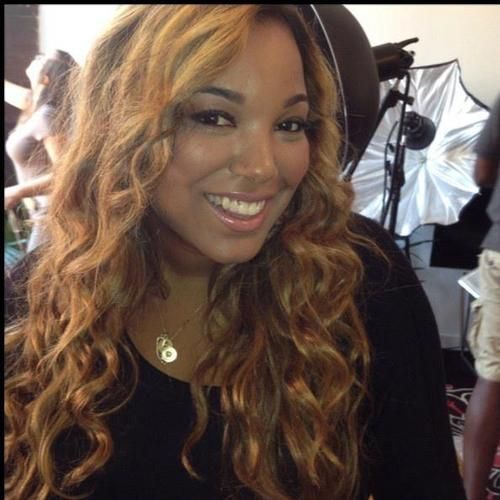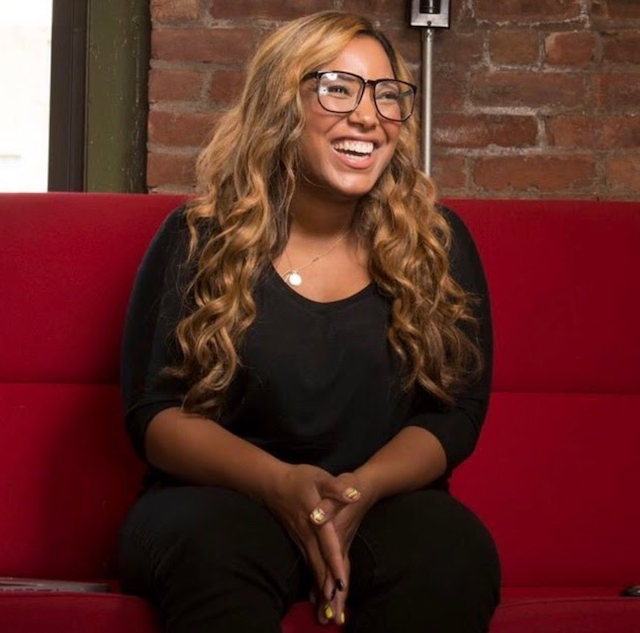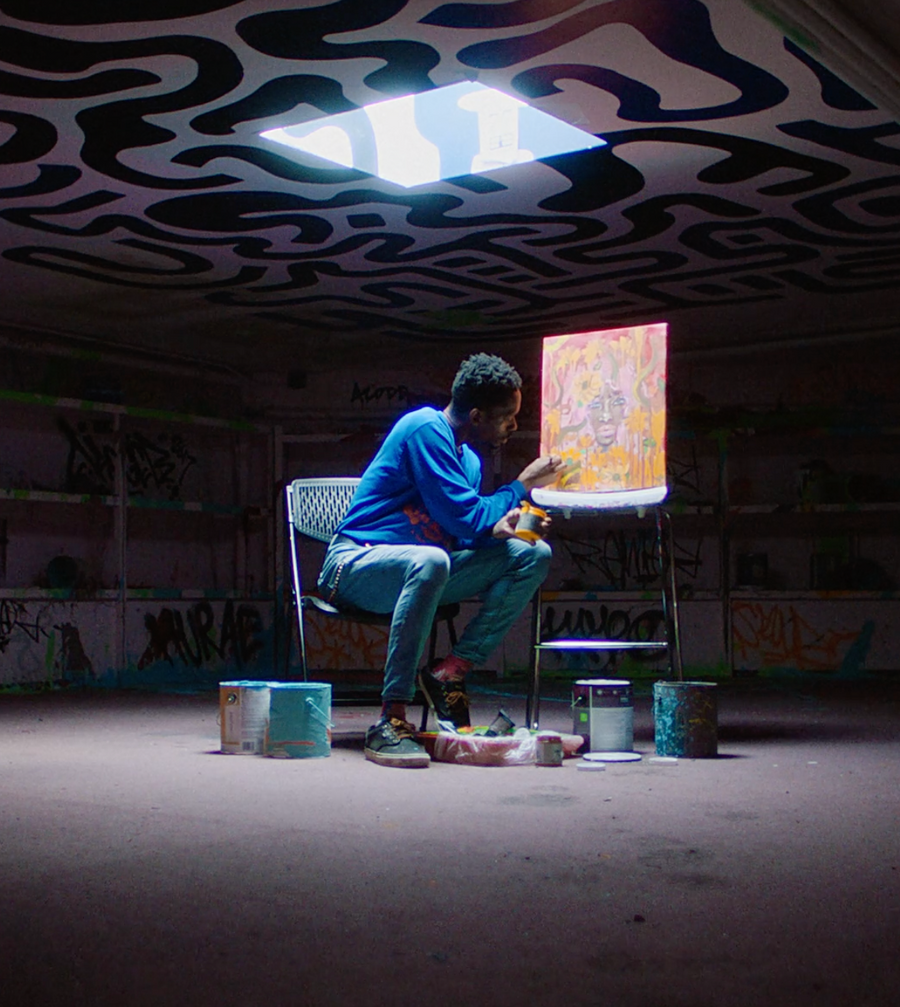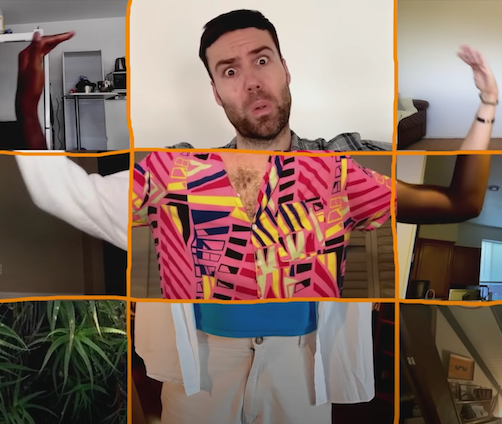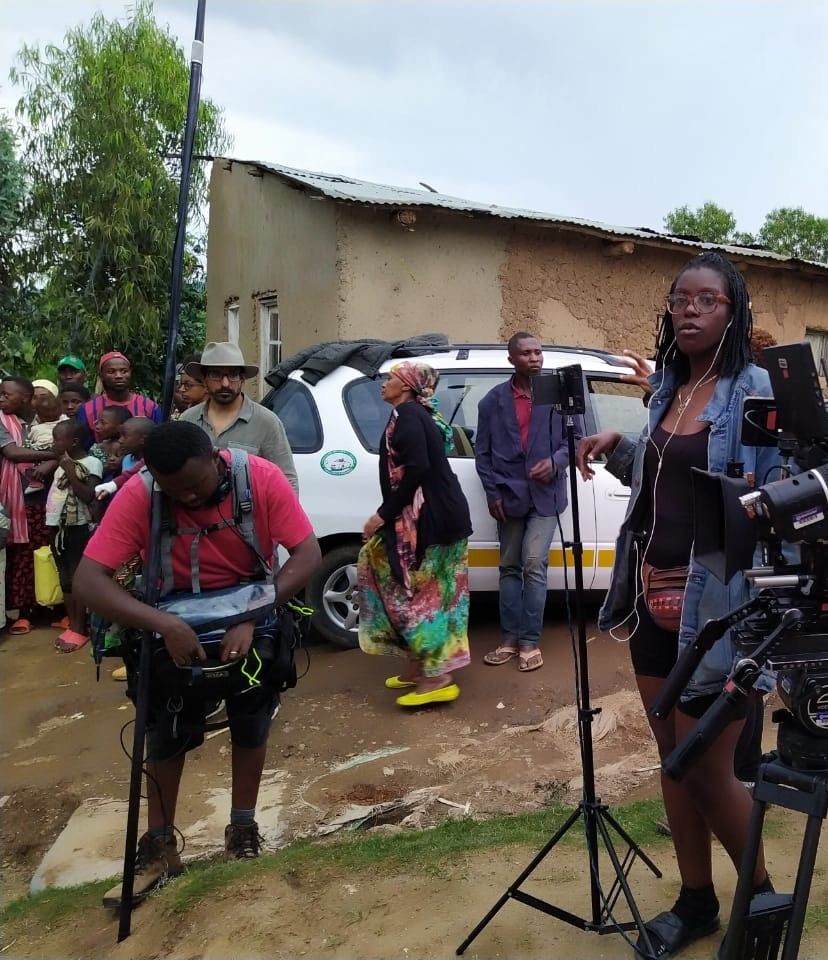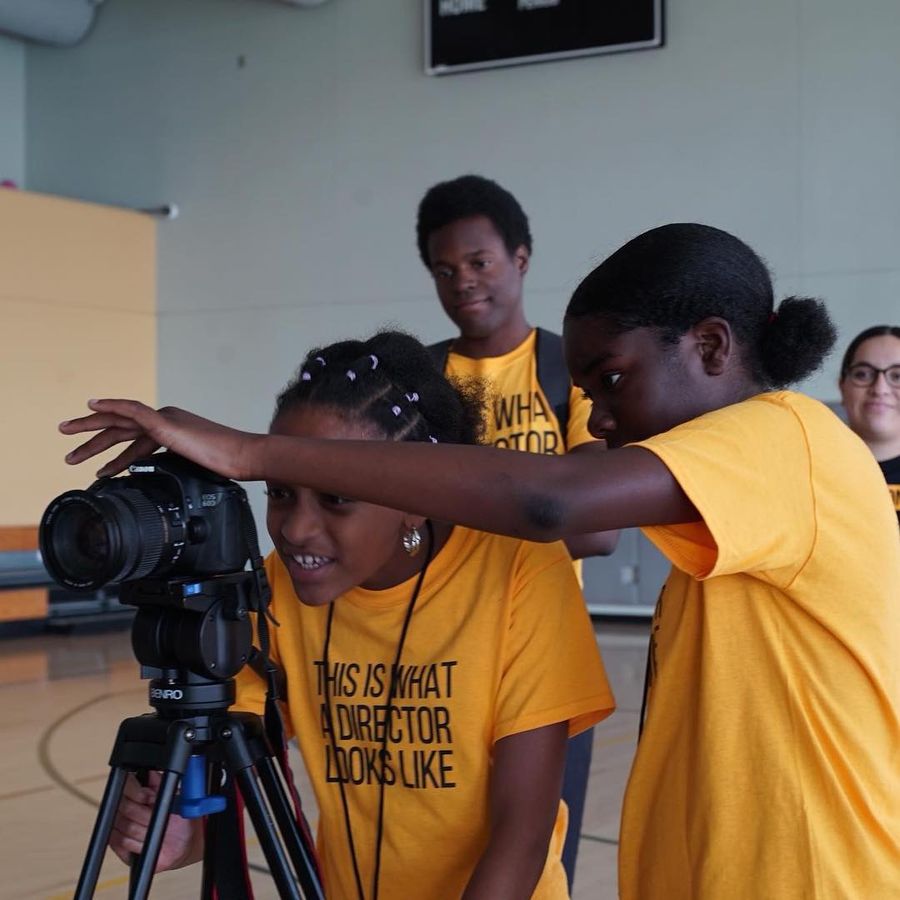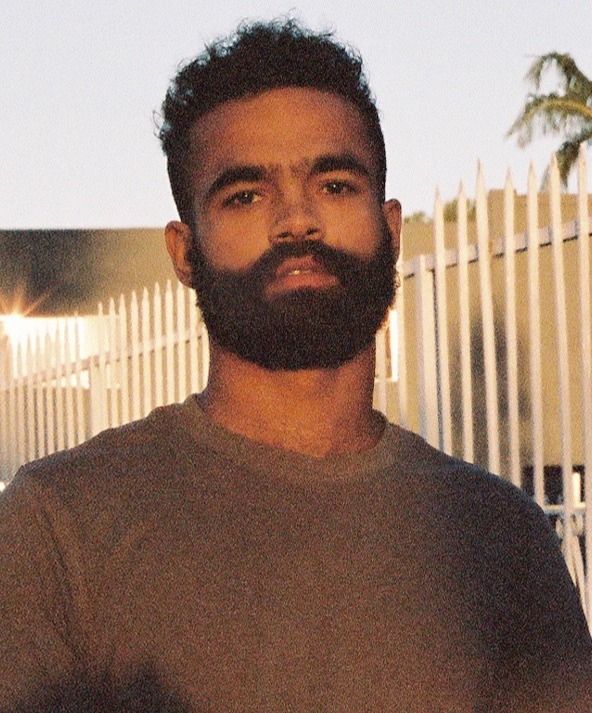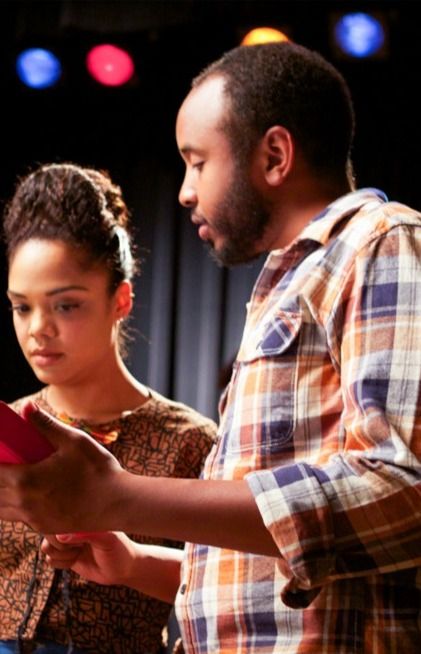To truly be in control of your career is something so many people fight for. Navigating the politics of your industry, maintaining your personal life, and waiting for preparation to meet opportunity all come into play. But Kanyessa McMahon paved her own way. Refusing to wait at someone else's starting gate, she founded her own company in her mid-twenties, and has been conquering the branded content and documentary world ever since. She is a one-woman production/director team, giving her complete control over her career and the product she puts out into the world.
Here, Kanyessa, who recently directed Ford's "Built Phenomenally" and "Own It" campaign, takes us on a ride through her illustrious career.
When did you get started in the industry?
I started really young. I was 25 or 26 when I started my company. My first client was Nike and for the next three years I was making videos and taking on anything. They called me the agency killer! I was like, 'Why are they so slow, I’ll just do it." With Nike, I produced over 300 videos. But I was a producer, I wasn't really a director. From there, I went to Adidas to become the Head of Global Online Brand Content for them.
How did you get into directing?
I had this boss, I called him Oz because I never actually saw him in person. He called me after he moved from global content to women’s content. They were working on this campaign that was over budget, and he called me and said, “I just called them and said that you’re directing all these now." And I was like, “What? I’m not a director!” And he was like, “Well, who has been directing all the pieces you’ve been doing for us and the ones you did with Nike? Who comes up with all the ideas?” And I was like, “I do.” So he told me to just focus on directing. [So] my first directorial-only role was on the “My Girl” Adidas campaign. This was the first time I could really focus on the creative.
Was there a really challenging period in your career?
I got pregnant and I kind of stopped working. I had the baby and was working with European companies. You can literally get paid and be gone for two years! So I crash landed into the next phase of my life. [In my career] I never really had to promote myself. I was just this internal person that people knew. I was having this moment of growth, but didn’t really know how to navigate it. So I went into [finding work again] kind of naively in the sense that, I did all this work for all these brands, and thinking someone would want to hire me, but I didn’t know how to because I never really had to pitch myself. I was reaching out to people for awhile.
There were a few freelance things, but nothing in a major capacity. It was like a one-and-a-half to two-year period where I wasn’t working. But a woman I had met at a brunch years ago reached out to me and asked me to work on a doc because she remembered my work. It was the "Queen Naija: A Way Out” YouTube documentary that won a Silver Clio. That was my first foray back into making something I was proud of, and truly an opportunity that came out of nowhere.
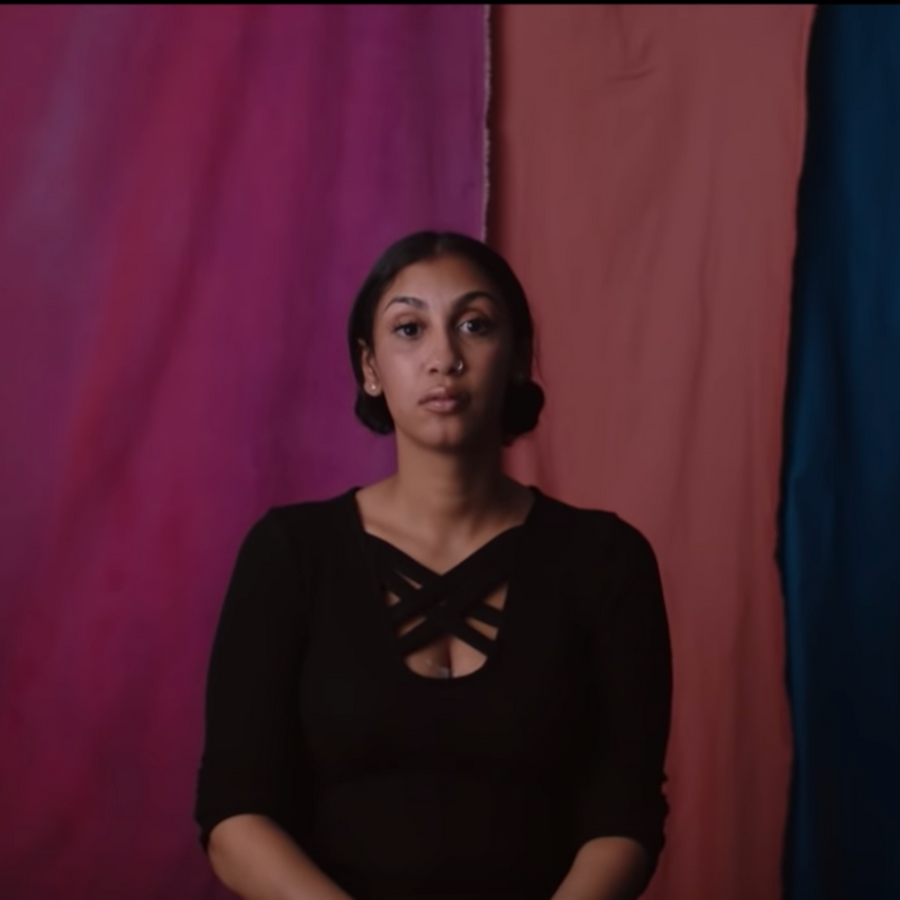
"[On the Ford set] there were a lot of brown women, and positive attitudes, and love and hugs. I really wanted people to support each other on set. Even when it was hard, I wanted them to give into that feeling."

You started in this industry pretty young. Do you feel like people treat you differently? Do you run into issues that you didn’t before?
When I first started at Nike, I used to think I looked the part. I wore miniskirts and high socks and had blonde hair like a crazy person. But I felt like I was very much a Nike woman. But, in retrospect, now as a mom, I feel like I don’t look the part of being a director. Anyone that has ever seen me on set, from 25 to now, knows I do two things: I wear tennis shoes and I wear a miniskirt or a dress because I don’t like things touching my legs. I need air! This is what I look like. I’m a director and if I’m wearing a miniskirt, and you don’t want me because I have a skirt on? Fuck you!
I loved both the spots you directed for Ford. They were so fun and beautiful. I read that it was an all-women crew. Was that something Ford wanted or was it more something that you needed?
They wanted all women. And thank god for Emma and FREE THE WORK! Emma introduced me to Daisy [Zhou]. She is a DP as well as a director, so she was another woman who was comfortable with directing and being in that position where I could trust her with everything [because I was also in the commercial]. They wanted women as all the heads of departments. There were so many women on set, and the majority were brown women. A lot of the men on set were saying things like they’ve never been on a set like this. One of the guys was like, "This is the most fun I’ve had lighting in 20 years."
People on set were feeling the magic of it. The spot itself is Black girl magic happening around the car, but I also wanted everyone to give into the moment. There were a lot of brown women, and positive attitudes, and love and hugs. I really wanted people to support each other on set. Even when it was hard, I wanted them to give into that feeling. And have fun!
"[Ford] said to me, after I got it, 'There was nothing in your reel to show that you can do this except for the fact that you said you could.'"
How did you approach the commercial? Was there a vision that you and Ford created together?
Well, I got a call from Eric Barrett at Mirror Films saying that he had this opportunity. I am more in the documentary and cinematic realm, but I ended up getting it. A lot of the things that came out of my brain were without context of how things would work. I don’t think in terms of VFX. I think in practicalities of things we can do with a camera. What we were given as reference points of what they wanted was different from what I gave them. Their reference was the A Different World intro. They wanted something like that, but with a car. Instead, I really went for it with my own creative concept.
I was really lucky to get people like Brandon [Mendez], who was down to take the things from my head and understand the things that didn’t necessarily make sense. I said I wanted a Black beauty salon, and I showed up and there it was.
How do you feel your past experience working on smaller projects shaped how you worked on this?
My documentary experience was helpful when things went wrong. Our final scene is not in the spot because a drone crashed! We had to readjust on set. We huddled away from the client and figured out all our options. We realized that if you turn on the lights people will assume that the car is turning on. The car is not moving in my whole spot! But, because I come from this doc world of getting what you can and adjusting, I can ask for adjustments and figure it out.
"It was really, really, really important to me to show the different ways that Black women can present themselves. There needed to be variations in body type, in hairstyle, in the ways that people carried themselves. Black girl magic in all of its ways."
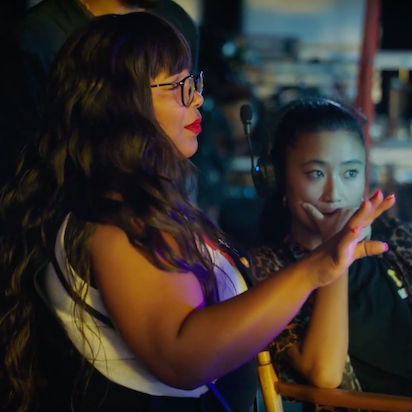
How involved in the post process were you? Having Angela Bassett doing the voiceover, having Big Freedia’s music in the background, and even the different types of Black women that were presented were all amazing choices.
I’m Black. I grew up in Los Angeles. I talk like this. I went to private school. I haven’t really seen women who look like me. No one is going to look exactly like someone else. There are all different types of women. It was really, really, really important to me to show the different ways that Black women can present themselves. There needed to be variations in body type, in hairstyle, in the ways that people carried themselves. Black girl magic in all ways. It was really important to me that there was a variation in complexion.
Was there a moment from the shoot that you won’t forget?
We had some girls [from Made in Her Image and Girls Make Beats] shadow me on set. There were like, 30 girls that came. It was interesting seeing the girls and their responses. When they found out I was the director they were like, “Wow!” And when they saw the beauty salon on set, they were in awe because they had never seen a Black beauty salon on TV or they had never seen a Black ballerina. It was great to see the impact of the small details that other people may not have noticed but the girls noticed right away. That stuff is important.
